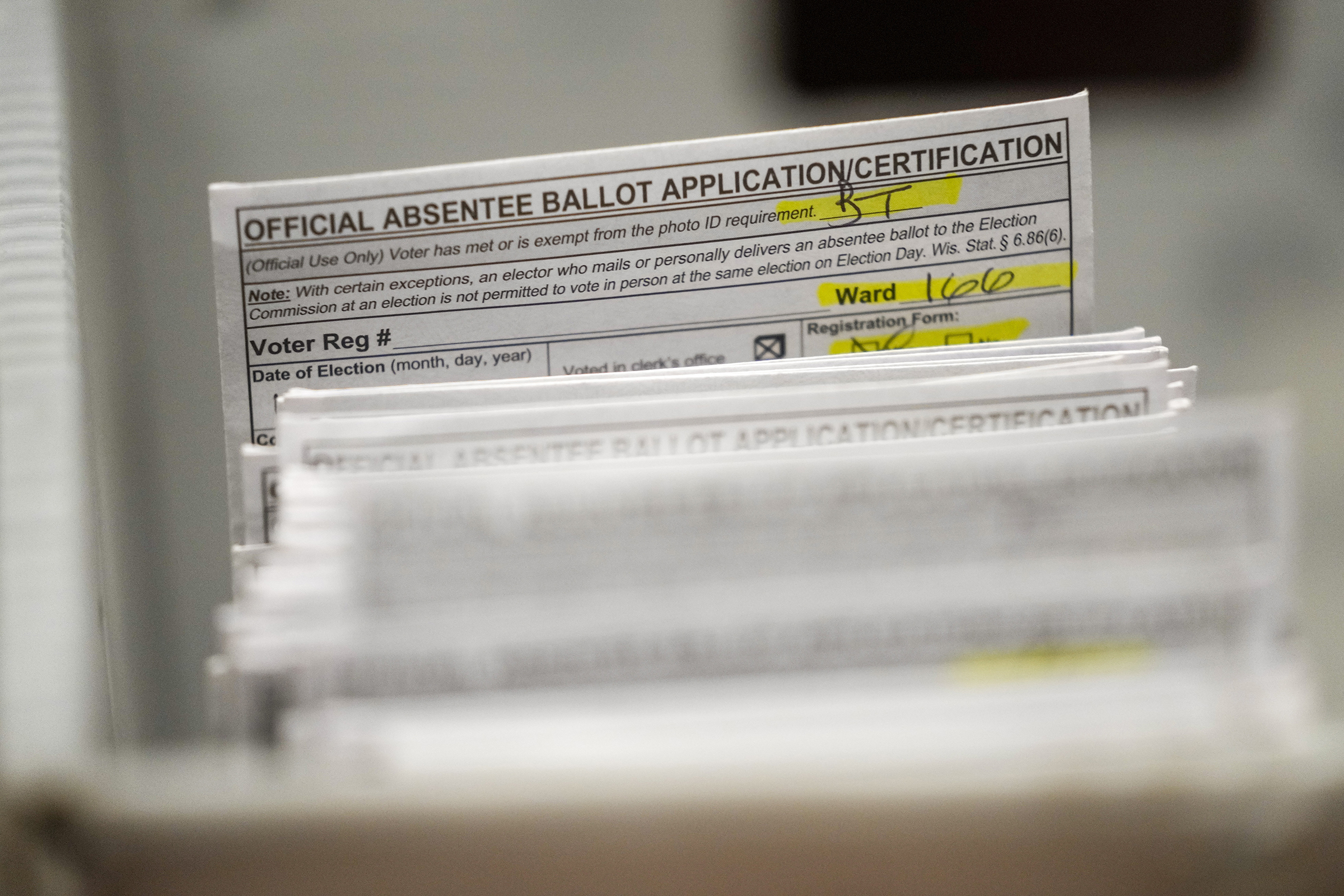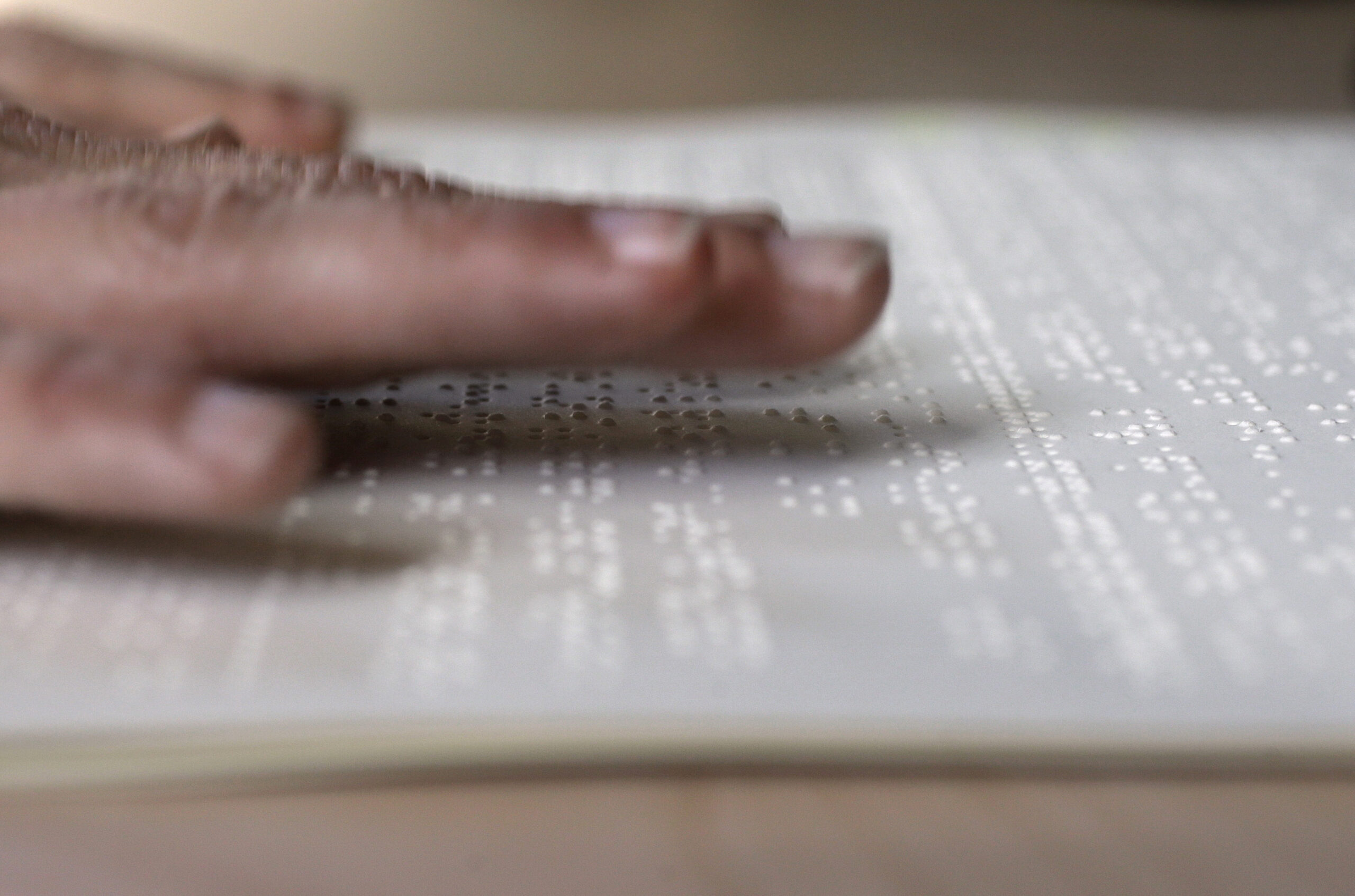Being diagnosed with a disability can change everything about your life. We talk to a Wisconsin woman about her experiences with newly-acquired and lifelong disabilities, and what people without a disability might not have realized. We get our weekly dosage of news from Capitol Hill and we also get the latest on the ongoing Dakota Access Pipeline protests after a recent clash with police and hundreds of protesters.
Featured in this Show
-
Hundreds Of Protesters Clash With Police At Pipeline Protests
Dozens of people were injured after about 400 Dakota Access Pipeline protesters clashed with police late Sunday night and early Monday morning. We get the latest on the protests from North Dakota.
-
This Week In Washington – November 23, 2016
Harry Enten, senior political writer and analyst for FiveThirtyEight, joins Central Time for our weekly look at the most pressing issues in national politics.
-
Adapting To A New Disability
A Wisconsin woman who has been blind since birth discusses how a new disability in middle age is different, and how any of us can adapt to changes in our health, abilities, and plans for the future.
-
Overcoming The Social Isolation That Often Comes With A Physical Disability
Katherine Schneider has an impressive resume.
She was her class valedictorian and a National Merit Scholar who went on to earn a doctorate. She’s a retired clinical psychologist and a former university professor. She’s the author of three books and sits on the Wisconsin Public Radio Association board. There’s even a national journalism award named in her honor.
She also happens to be blind.
Her blindness is part of who she is, but it doesn’t define her. Some folks have blonde hair. Others are left-handed. Some people have a peanut allergy. Schneider can’t see. It’s been that way for her since birth.
While most people aren’t defined by a single trait, Schneider sometimes is. Her guide dog often alerts those around her of her visual disability. And sometimes, because her blindness is on display so to speak, Schneider, and other people with physical disabilities, lives in a bubble of isolation.
“I think there’s a bubble around those of us with disabilities that people don’t want to do the wrong thing, say the wrong thing. So sometimes they just avoid contact at all,” she said. “I think on the outside, it feels like there’s a bubble of anxiety of, ‘What should I do?’ And in the inside, it feels like a bubble of isolation. ‘Hello out there! I’m here!’”
Schneider said she understands that those around her are well-meaning and want to engage with her but sometimes feel socially paralyzed by her presence. She suggests to them to take “your anxiety by the hand” and make contact.
A simple hello goes a long way. As does an offer for help, or a thought about the weather. When in doubt, there’s always, ‘What’s going on with the Green Bay Packers?’
“You don’t have to know how to do what you want to offer to help with,” Schneider said. “You just have to make the contact, make the offer.”
It’s advice that harkens back to a lyric from one of Schneider’s favorite poets, the late Leonard Cohen, who sings about escaping the darkness in his 1992 song “Anthem.”
Ring the bells that still can ring
Forget your perfect offering
There is a crack in everything
That’s how the light gets inThese are small and important lessons to learn because according to the U.S. Census Bureau, nearly one in five Americans are living with a disability, and about half of those are considered severe.
Additionally, some new disabilities crop up later in life when people may not be expecting them, even if they’ve coped successfully with other physical challenges for years. And whenever that change happens, it can take a lot of adjustment.
For those who do become disabled in some way late in life, Schneider recommends a willingness to ask for help, patience and seeking a support system.
“People need to realize it’s a steep learning curve, just like learning to use Windows 10 or something. It’s hard. And to be patient with themselves. And to look out for information, whether that’s joining a support group, going on the internet, finding some kind of a community — people who have some tricks of the trade to help you,” Schneider said.
She added that these newly acquired disabilities will also mean confronting discrimination. There will be cold shoulders, poor public amenities and assumptions about intelligence. Schneider said she’s still learning to handle those situations with patience and grace — which sounds a lot like something all of us are trying to do.
Episode Credits
- Rob Ferrett Host
- Veronica Rueckert Host
- Haleema Shah Producer
- J. Carlisle Larsen Producer
- Judith Siers-Poisson Producer
- Dave Thompson Guest
- Harry Enten Guest
- Katherine Schneider Guest
Wisconsin Public Radio, © Copyright 2024, Board of Regents of the University of Wisconsin System and Wisconsin Educational Communications Board.



